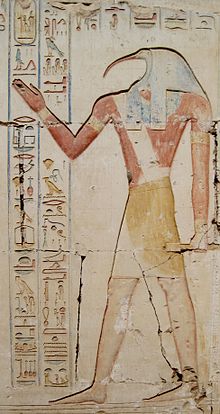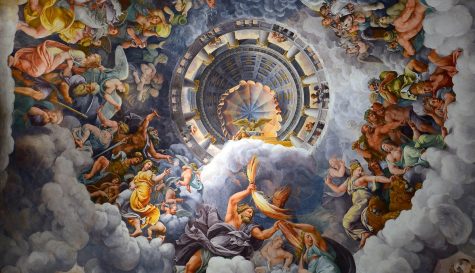Featuring Mythologies- Thoth
Moving South of Greece, we have entered the country where an interesting mythology-based religion was the center of life. Egypt. Where the Pharaohs ruled and the pyramids were built. Where the worship of Thoth began.
The Egyptians called him Thoth, meaning he who has the head of the Ibis. The Ibis is a bird that was kept as a pet and was commonly associated with wisdom. Thoth’s origin has two theories: he is said to either be self-created or the son of Horus and Set. He represented equilibrium, being the son of chaos and order. In addition, he was popularly known for being the god of wisdom, magic, writing and the moon. In Thoth’s other form, A’an, he judged spirits with Osiris in the underworld. When fearing judgment or having concerns, spirits would visit A’an for wisdom and help. Thoth also had various consorts, one of which was Seshat, goddess of writing, keeper of books, and patron goddess of libraries.
(He was depicted to look like a man with a head of an Ibis, hence his name Djehuty/Thoth.)
Thoth was worshipped in the Predynastic period (6000-3150 BCE) in Lower Egypt. His worship continued through the Ptolemaic Period (323-30 BCE). Thoth’s veneration (admiration/idolization) was the longest of any Egyptian deity, or of any deity from other civilizations. The influence and importance of Thoth went as far as having his name used by pharaohs and scribes of Egypt. Fun fact: as the patron god of scribes, scribes would pour out a drop of their ink in Thoth’s honor prior to them beginning their daily work.
Returning to our regularly scheduled activities, let’s hope Thoth’s wisdom will help us to pass our English classes.

Micaela Gaither is embarking on her Senior year at FGHS, with multiple APs and her first year as Editor-In-Chief of the Advocate. When the time arises,...



























































































































